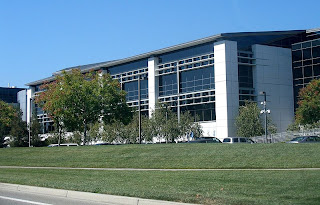




GOOGLE began in January 1996, as a research project by Larry Page, who was soon joined by Sergey Brin, two Ph.D. students at Stanford University in California. They hypothesized that a search engine that analyzed the relationships between websites would produce better ranking of results than existing techniques, which ranked results according to the number of times the search term appeared on a page.Their search engine was originally nicknamed "BackRub" because the system checked backlinks to estimate the importance of a site. A small search engine called Rankdex was already exploring a similar strategy.
Convinced that the pages with the most links to them from other highly relevant web
pages must be the most relevant pages associated with the search, Page and Brin tested their thesis as part of their studies, and laid the foundation for their search engine. Originally, the search engine used theStanford University website with the domain google.stanford.edu. The domain google.com was registered on 15 September 1997, and the company was incorporated as Google Inc. on 7 September 1998 at a friend's garage in Menlo Park, California. The total initial investment raised for the new company amounted to almost US$1.1 million, including a US$100,000 check by Andy Bechtolsheim, one of the founders of Sun Microsystems.
The name "Google" originated from a common misspelling of the word "googol",which refers to 10100, the number represented by a 1 followed by one hundred zeros. Having found its way increasingly into everyday language, the verb "google", was added to the Merriam Webster Collegiate Dictionary and the Oxford English Dictionary in 2006, meaning "to use the Google search engine to obtain information on the Internet."
99% of Google's revenue is derived from its advertising programs. For the 2006 fiscal year, the company reported US$10.492 billion in total advertising revenues and only US$112 million in licensing and other revenues. Google is able to precisely track users' interests across affiliated sites using DoubleClick technology and Google Analytics. Google AdWords allows Web advertisers to display advertisements in Google's search results and the Google Content Network, through either a cost-per-click or cost-per-view scheme. Google AdSense website owners can also display adverts on their own site, and earn money every time ads are clicked. Google has also been criticized by advertisers regarding its inability to combat click fraud, when a person or automated script is used to generate a charge on an advertisement without really having an interest in the product. Industry reports in 2006 claim that approximately 14 to 20 percent of clicks were in fact fraudulent or invalid.
As an interesting motivation technique (usually called Innovation Time Off), all Google engineers are encouraged to spend 20% of their work time (one day per week) on projects that interest them. Some of Google's newer services, such as Gmail, Google News, Orkut, and AdSense originated from these independent endeavors. In a talk at Stanford University,Marissa Mayer, Google's Vice President of Search Products and User Experience, stated that her analysis showed that half of the new product launches originated from the 20% time.
No comments:
Post a Comment